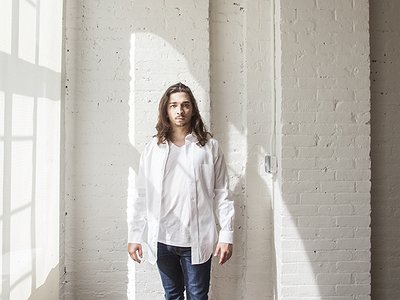Part 2
Do you feel it important that an audience is able to deduct the processes and ideas behind a work purely on the basis of the music? If so, how do you make them transparent?
I think it’s highly interesting when the musical process in a composition is relatively transparent and disarmingly straightforward. James Tenney once explained his interest in “avoidance of drama”. In an interview (1978) with Gayle Young, Tenney explains a sense of predicability in his work:
“...after they’ve heard the first twenty seconds of the piece, they can almost determine what’s going to happen the whole rest of the time. When they know that’s the case, they don’t have to worry about it anymore—they don’t have to sit on the edge of their seats. . . .”
I share this predilection for dialling the audience into a contemplative state, of truly listening to sounds, where the feeling and structure becomes that much more palpable. There is still room for innovation, may it be esoteric or enigmatic, but there is a clear avoidance of surprise in the form of formulaic entertainment.
With more and more musicians creating than ever and more and more of these creations being released, what does this mean for you as an artist in terms of originality? What are some of the areas where you currently see the greatest potential for originality and who are some of the artists and communities that you find inspiring in this regard?
I think any sort of growth in the arts should be welcomed and encouraged: The more the merrier. If you ask some, they express that we are entering into a new golden age; while others view the influx of information and noisy activity as a confusing dark age.
Artists who express a singular vision are extremely inspiring. Their potential for originality, envelopes around one’s openness with the world, and also permeates from a pervasive sense of self-respect and personal focus. My mentors have always instilled these guiding principles of intuition and artistic integrity.
How would you define the term “interpretation”? How important is it for you to closely work together with the artists performing your work?
Interpretation in its highest form is as important as composition. It brings to life detail and nuance that could only exist outside the work itself. I find myself almost exclusively writing work for specific performing artists in mind, often determining the venue and accompanying program from the onset.
The food for thought is captured in the dialogue, creating a feedback cycle where everyone involved can grow in the process. My favourite collaborations are with performers in which simultaneously, they transform the sonic potential presented, and I help expand the way one would approach the music.
The effect of a piece doesn't merely depend on the performance of the musicians, but also on the place it is performed at. How do you see the relationship between location and sound? In how far do you feel the current system of concert halls is still the right one for your music – or for contemporary music in general?
I feel the physical location can shape sound in phenomenal ways. There is certain multi-dimensional aspect to music, known as spatialization, which is highly interconnected to the material. My teacher Bunita Marcus once said, you have to envision each note you write going out into the space and then coming back to you. You have leave room for this on the page.
I have really enjoyed hearing my music in larger spaces, like cathedrals, that add drenched reverberation, conducive to the sort of sacred sound I try to cultivate. I also like intimate salon-style venues, which allow for a heightened detail and clarity to be discernible.
The system for concert halls is being transformed slowly, as the realities and demands of the audience are shifting within the 21st century post-information era. I also think DIY has created fruitful results for many, and allows for panoply of performance styles. We shall see!
What's your view on the role and function of music as well as the (e.g. political/social/creative) tasks of composers today - and how do you try to meet these goals in your work?
Music can be very utilitarian, present in almost every social situation. Music has power to motivate, and even condition humanity. I personally don’t typically insert any extra-musical goals of an explicitly political nature. I find polemics limiting in my work. My goal is to tap the listener to another world, an ideally transcendental experience, or at the very least, peaceful non-violence.
I just released a new record The South Shore on XI Records. It was a tremendous amount of work to bring 25 musicians together, featuring over 2 hours of music with liner notes by “Blue” Gene Tyranny and photography by Phill Niblock. I find the tasks of the composer today have expanded to incorporate the recorded music tradition; where as in Morton Feldman’s generation, it was much more of an after-thought.
Do you have a musical vision that you haven't been able to realise for technical or financial reasons – or an idea of what music itself could be beyond its current form?
I want to write for large ensemble(s), choir(s), and orchestra(s). My largest work to date is a chamber octet, and I want to explore works beyond these resources. Practicality and desire for collaborative relationships have led to a focus on smaller groups and solos. I would like to explore a whole new dimension on this scale.
If you enjoyed this interview with Michael Vincent Waller, visit his website or bandcamp page for more music and further information.






